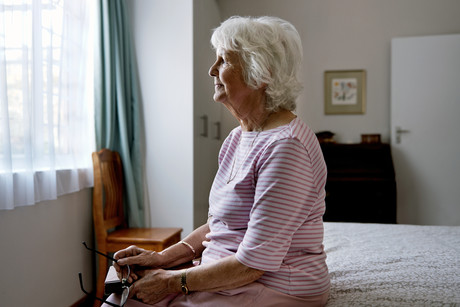1 in 2 women will develop dementia/parkinsonism/stroke

Without the intervention of preventative strategies, 1 in 2 women and 1 in 3 men are likely to be diagnosed with dementia, Parkinson’s disease or stroke in their lifetime.
The startling numbers come from an observational study by Dutch researchers published online in the Journal of Neurology Neurosurgery & Psychiatry.
But the researchers said that preventative strategies, which delay the onset of these common diseases by even a few years, could, in theory, cut this lifetime risk by between 20% and 50%.
The global costs of dementia, stroke and parkinsonism are thought to amount to more than 2% of the world’s annual economic productivity (GDP), a figure that is set to rise steeply as life expectancy continues to increase.
But while the lifetime risks of other serious illnesses, such as breast cancer and heart disease, are well known and used to raise public awareness, the same can’t be said of dementia, stroke and parkinsonism, the researchers said.
Neurological health study
To try and redress this, they tracked the neurological health of more than 12,000 people taking part in the Rotterdam Study between 1990 and 2016. This study has been looking at the incidence of, and influential factors behind, diseases of ageing in the general population.
All the participants were aged at least 45 years old when they were recruited, and more than half (just under 58%) were women.
When they joined, participants were given a thorough health check, which was repeated every four years. Family doctor health records were also scrutinised for signs of disease or diagnoses arising between the four-yearly check-ups.
Monitoring for dementia, parkinsonism and stroke continued until death, or 1 January 2016, whichever came first.
Between 1990 and 2016, 5291 people died, 3260 of whom had not been diagnosed with any neurological disease. But 1489 people were diagnosed with dementia, mostly Alzheimer’s disease (just under 80%); 1285 had a stroke, nearly two-thirds of which (65%) was caused by a blood clot (ischaemic); and 263 were diagnosed with parkinsonism.
A higher prevalence of high blood pressure, abnormal heart rhythm (atrial fibrillation), high cholesterol and type 2 diabetes was evident at the start of the monitoring period among those subsequently diagnosed with any of the three conditions.
Gender differences
Unsurprisingly, the risk of developing any of them rose steeply with age, but based on the data, the overall lifetime risk of a 45-year-old developing dementia or parkinsonism, or having a stroke was one in two for a woman (48%) and one in three for a man (36%).
This gender difference was largely driven by women being at heightened risk of developing dementia before men. But there were other gender differences in risk.
While 45-year-olds of both sexes had a similar lifetime risk of stroke, men were at substantially higher risk of having a stroke at younger ages than women.
And women were twice as likely as men to be diagnosed with both dementia and stroke during their lifetime.
The researchers calculated that if the onset of dementia, stroke and parkinsonism was delayed by 1 to 3 years, the remaining lifetime risk could, in theory, be reduced by 20% in 45-year-olds and by more than 50% in those aged 85+.
A delay of only a few years for one disease could also have a significant impact on combined lifetime risk, the researchers suggested.
“For instance, delaying dementia onset by 3 years has the potential to reduce lifetime risk of any disease by 15% for men and women aged 45, and by up to 30% for those aged 85 and older,” they wrote.
The researchers pointed out that their study included only people of European ancestry with a relatively long life expectancy, so might not be applicable to other ethnicities/populations, and that they weren’t able to measure the severity of any of the diagnosed conditions.
This research is observational, so no definitive conclusions can be drawn. But the researchers nevertheless concluded: “These findings strengthen the call for prioritising the focus on preventive interventions at population level which could substantially reduce the burden of common neurological diseases in the ageing population.”
2026 HESTA Excellence Awards — nominations open
Nominations have opened for the 2026 HESTA Excellence Awards, which encompass the aged care,...
Hospital fined $230K after aged care chair detachment
A hospital has been fined $230,000 over an incident involving a 93-year-old aged care resident...
Alliance to lay foundations for national creative health infrastructure
Creative Health Alliance Australia launched this month, in order to lay the foundations for...


![[New Zealand] Transform from Security Awareness to a Security Culture: A Vital Shift for SMB Healthcare — Webinar](https://d1v1e13ebw3o15.cloudfront.net/data/89856/wfmedia_thumb/..jpg)
![[Australia] Transform from Security Awareness to a Security Culture: A Vital Shift for SMB Healthcare — Webinar](https://d1v1e13ebw3o15.cloudfront.net/data/89855/wfmedia_thumb/..jpg)




